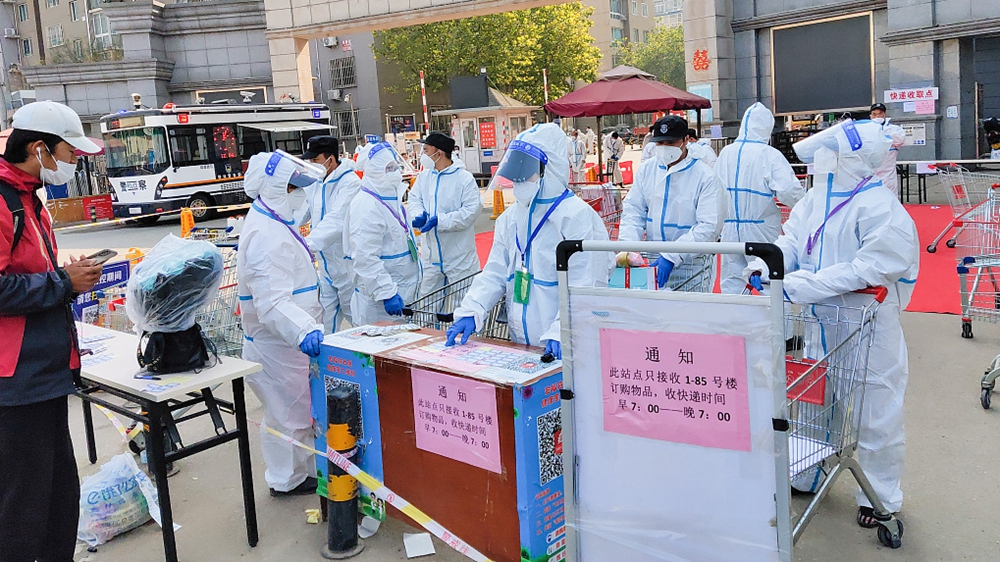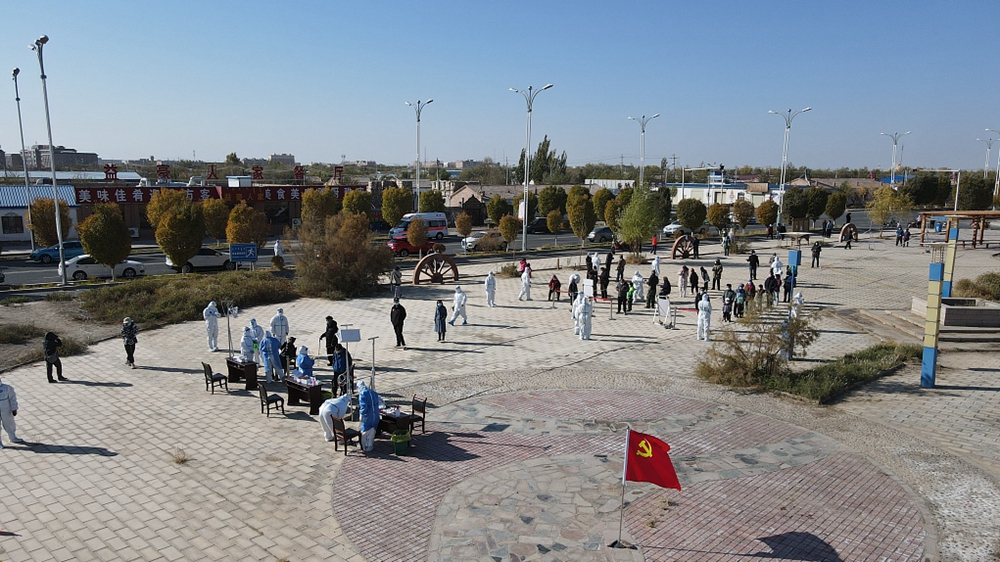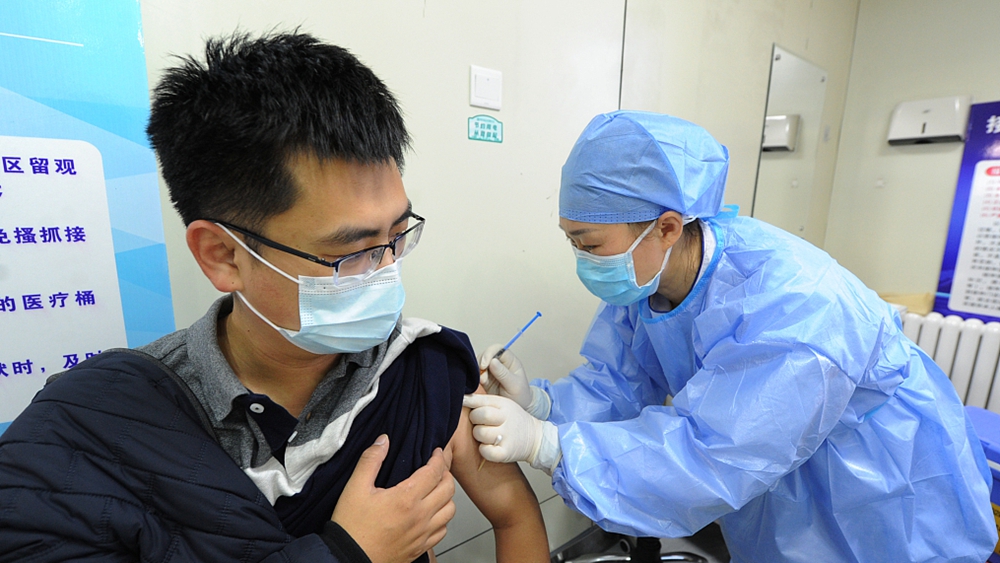
COVID-19 prevention workers register items purchased by quarantined residents at a community in Changping District, Beijing, October 24, 2021. /CFP
COVID-19 prevention workers register items purchased by quarantined residents at a community in Changping District, Beijing, October 24, 2021. /CFP
It is increasingly likely that COVID-19 will spread further in China after its recent resurgence, health officials said on Sunday, as authorities urged all regions to step up monitoring and reduce travel and gatherings across the country.
Since October 17, at least 168 locally transmitted cases – most of them linked to 13 tour groups or self-driving tours – have been confirmed in 11 provincial areas.
There is increasing risk that the outbreak might spread further, helped by "seasonal factors," Mi Feng, spokesperson for the National Health Commission (NHC) told a news conference on Sunday.
The sporadic and fast increase of the cases is believed to have been caused by an imported case, said a health official at the conference.
"Most cases reported in the recent wave are of the Delta variant, which is highly transmissible," said Wu Liangyou, deputy director of NHC's Disease Prevention and Control Bureau. Sequencing showed the virus strain to be different from the source of an earlier outbreak in the country, suggesting that the new cases are attributable to a new source from abroad, he added.
"The latest resurgence developed fast, with a growing number of cases that were not related to the tour groups," said Wu, adding that the cases will continue to grow in the next few days and spread to more areas, but the mass screenings were being conducted in several cities.

Locals receive third round of nucleic acid testing in Ejin Banner, Inner Mongolia Autonomous Region, north China, October 22, 2021. /CFP
Locals receive third round of nucleic acid testing in Ejin Banner, Inner Mongolia Autonomous Region, north China, October 22, 2021. /CFP
Cross-provincial travel to higher risk regions banned
So far, the new wave has hit 11 provinces and regions, including the northwest China's Ningxia Hui Autonomous Region, north China's Inner Mongolia Autonomous Region, northwest China's Gansu and Shaanxi provinces, and Beijing. Most of the reported cases are in Gansu and Inner Mongolia.
Inner Mongolia reported 19 locally transmitted cases, highest among the 35 cases confirmed on Sunday.
All residents and tourists in Ejin Banner, Alxa League, Inner Mongolia will be under home quarantine for COVID-19 starting from Monday, a notice from the local authorities said. One community in Ejin Banner was also upgraded to a high-risk area last week..
Authorities have banned travel agencies from arranging cross-provincial tourism activities in regions that contain medium- or high-risk areas.
The capital Beijing has also tightened entry restrictions as people from cities that have positive cases are advised not to travel to Beijing if it's not urgent, local authorities said at a presser on Sunday.
Inbound travelers from areas with locally transmitted cases must provide negative nucleic acid results within two days and undergo a 14-day health observation after arriving in Beijing, said Pan Xuhong, deputy head and spokesperson for the municipal public security bureau.

A man receives a COVID-19 booster shot at a medical institution in Changchun City, Jilin Province, NE China, October 23, 2021. /CFP
A man receives a COVID-19 booster shot at a medical institution in Changchun City, Jilin Province, NE China, October 23, 2021. /CFP
Nucleic acid tests and vaccine boosters recommended
The NHC has established a database of at least 8,500 nucleic acid testing institutions across the country to facilitate the people looking to get tested.
More than 2.24 billion doses of COVID-19 vaccines have been administered across the Chinese mainland as of Saturday, the NHC said Sunday, with more than 1 billion people completely vaccinated.
China is giving booster shots to adults whose last dose was at least six months ago, with priority groups including essential workers, the elderly and those with weaker immune systems.
Wang Huaqing, chief expert for the immunization program at the Chinese Center for Disease Control and Prevention, said China would not keep giving people booster shots indefinitely.
"Even if it needs to be strengthened later, the number of boosters is limited," Wang told the briefing. "We hope in the future there will be better vaccines and better vaccination procedures to achieve solid protection among the public."

